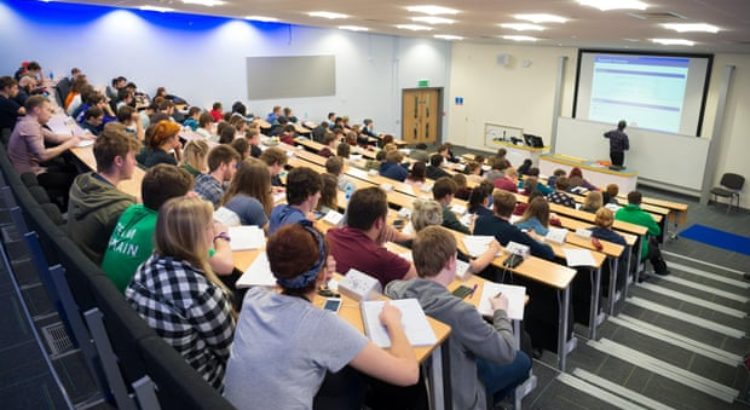By: Claire Hynes.
Back in the days when higher education was mostly for the benefit of a select group of middle-class kids, I had a meeting with my school careers teacher, who asked me what I wanted to do in the future. When I told her I was thinking about furthering my studies and finding a job that involved writing, she declared that a suitable plan for me was to leave school at 16 and train to become a secretary. Apparently I didn’t look like the sort of person who should attend university.
Over time I’d come to believe these attitudes belonged to the past – a bygone age of middle-class privilege now thankfully over. Now, though, it seems that thinking has become core government policy.
It seems to be more difficult than ever for young people to enter higher education. Graduates in England have the highest student debts in the developed world. They will leave institutions with nearly double the debt of their US counterparts, and three times the debt of the next highest in Europe. A commons committee this week found a wide gap in access between the most and least advantaged students, despite institutions’ spending on access and widening participation schemes. It saw evidence that showed that poorer students were hit hardest by the system of student loans, and expressed concern at the drop in numbers of part-time and mature students. Thanks to the abolition of maintenance grants in 2015, the poorest students will pay on average £14,000 more in loans than better-off students. Once they emerge from their studies, on average they will have forked out a grand total of £57,000, according to the Institute of Fiscal Studies.
And universities themselves are facing unprecedented criticism. Since the summer, accusations have raged about a rise in the number of unconditional offers given out. The institutions have been blamed for a “bums on seats” mentality by the higher education minister Sam Gyimah, who appears to have forgotten that just four years ago the government lifted the cap on student numbers in an effort to marketise higher education. Then there have been exaggerated and often false claims about no-platforming and safe spaces.
And alongside this, the government has a plan to create three million apprenticeships by 2020. So, it seems poorer students worried about the cost of universities can opt for one of these. Perhaps the new schemes will prove viable options for many young people. But who will decide which 18-year-olds are best suited to vocational study? And on what grounds will these decisions be based? We could end up going back to the days when university was only for the well-off, with the disadvantaged predominantly taking apprenticeships.
It’s incredible that the politicians and policymakers who try to undermine universities have themselves benefited from all the opportunities offered by these places of learning – asking questions about themselves and the world around them and preparing for higher-status careers. A university education is apparently good enough for them, but not good enough for ordinary people.
Nine out of 10 MPs studied at university – and around half of the cabinet – and a quarter of all MPs – studied at Oxford or Cambridge, according to the Sutton Trust. Do these people really believe they’d have been better off leaving at school at 16 and taking a vocational course in political life?
How did society arrive at the idea that so many people having a degree is cause for worry? Britain is home to the world’s leading universities – primarily in the arts and humanities, the subjects most commonly derided. That half of young adults benefit from a university experience, and that society benefits in turn, should be applauded.
The well-worn cliches about so called “mickey-mouse” subjects and limited job prospects should be put to rest too. Evidence shows that employers are crying out for the “soft” skills that graduates possess as a result of their university experience. It doesn’t matter whether these degrees are in computer science or in leisure management; the skills that students acquire are valuable and transferable. And graduates earn on average £10,000 morethan their non-university educated counterparts.
Of course, debt causes huge stress among students. As a university lecturer, I have had many students share their worries with me about how they will afford books or balance their studies with part-time work. But it’s plain wrong that young people should be warned off education because it’s too expensive. What will be next? Should less well-off young people be discouraged from buying their own home too?
It’s the crippling student loan system that should be challenged, not the desire of young people to attend higher education institutions. We should be proud that half of all young adults benefit from our university system. RA Butler, the Conservative education minister who conceived the 1944 Education Act, should be turning in his grave.
Source of the article: https://www.theguardian.com/commentisfree/2018/nov/09/poorer-pupils-higher-education-university-benefits-privilege








 Users Today : 2
Users Today : 2 Total Users : 35460211
Total Users : 35460211 Views Today : 3
Views Today : 3 Total views : 3418898
Total views : 3418898